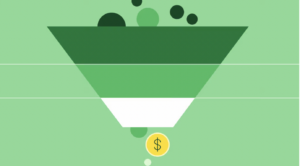Data Science Ethics: Where Should We Draw The Line?
As a marketer, I love data. It gives me the unique opportunity to get to know my customers on a much deeper level; therefore, allowing me to create content and ads that my customers will actually enjoy. Data collection also improves my personal life for several reasons i.e. Netflix’s Recommended For You, Amazon’s Items You May Like, and the list goes on! For both of these reasons, I think that collecting data benefits everyone.
But does it really?
It seems like there is a new data collection scandal everyday, remember the uproar caused when Grindr was sharing the HIV status of their users with third parties? Situations like these beg the question: Where do we draw the line between innocent data collection and invading one’s privacy?
I believe there are two schools of thought when it comes to data science ethics. It comes down to America’s view and the European Union’s.
America: It Should Be Up To The Customer
In the United States, there are a variety of laws in place to help protect individuals when it comes to data collection, but they often only apply to certain industries like health and credit. Without getting too technical, the rule when it comes to data collection in America is, “Laws protecting data and consumer privacy are based on the principle that an individual has an expectation of privacy unless that expectation has been diminished or eliminated by agreement, statute, or disclosure” (ICLG).
Why does this simple sentence allow companies to so easily track your online activity? If you guessed “Terms & Conditions” you are absolutely correct!
Most of us, me included, often scroll through those long terms and conditions and check the box at the bottom without even reading the content. This is dangerous considering that you are signing a very real and very legal document. So if you are hesitant to share your personal information with companies or simply don’t feel comfortable having your online activities tracked, you may want to read through the terms and conditions before signing!
All in all, in America there is a lot of responsibility placed upon the customer. Not only do you have to know when and where you are agreeing to being tracked, but you also have to know how that company will use your information as well- which is probably what got Grindr into that sticky situation.
EU: The Government Should Draw The Line
Now we switch notes and analyze how the EU views and protects the data of their citizens- heads up it is drastically different. In the European Union, data privacy is considered a fundamental right; thus, they go to great lengths to protect the information of their citizens from corporations.
Earlier this year, the EU passed the General Data Protection Regulation (GDPR). This rule is built on the previous rules of the Privacy Shield and Data Protection Directive but increases both the regulations and consequences. According to The Verge,
“First, the GDPR sets a higher bar for obtaining personal data than we’ve ever seen on the internet before. By default, any time a company collects personal data on an EU citizen, it will need explicit and informed consent from that person. Second, the GDPR’s penalties are severe enough to get the entire industry’s attention. Maximum fines per violation are set at 4 percent of a company’s global turnover (or $20 million, whichever is larger).”
This major shift in the EU has had implications on companies all around the world because the internet is by definition a global space. Exactly how are companies being affected by this change? Only time will tell! What we do know is that citizens of the EU are responding well to these increased data privacy laws.
So… What Is Better?
I wish I could tell you which option was better in terms of focusing on the customer. But at the end of the day, I really am not sure. Both arguments have their pros and cons, but ultimately I think the answer lies in culture. Without analyzing how individuals interact with the internet, what they expect from it, and what information they consider to be private, we can’t come to an agreement on what the best action to take is.
Until then, I will most certainly still let Instagram send me ads for Glossier products and Chick-Fil-A sandwiches. I’m curious as to your thoughts on the matter of data collection! Let’s chat about it LinkedIn.







